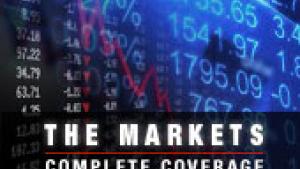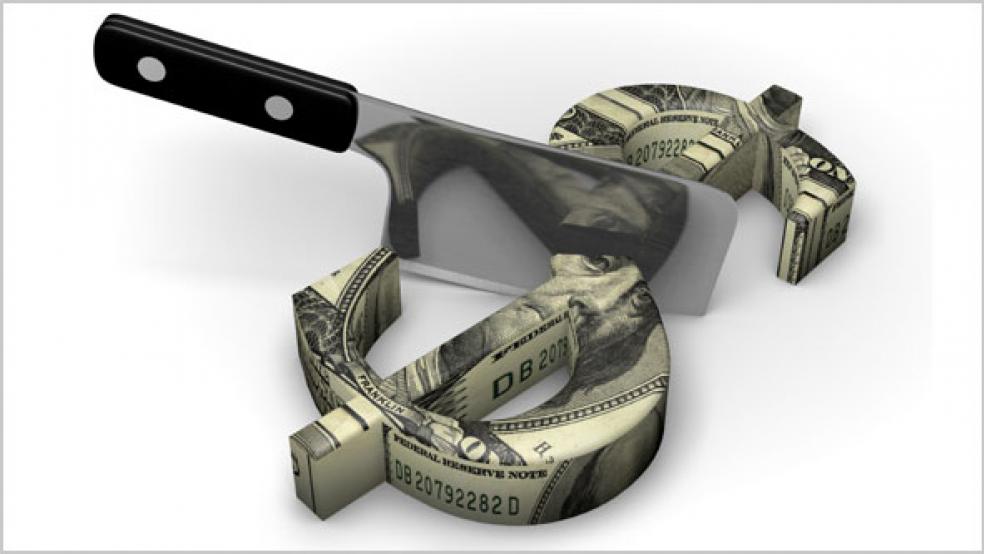For most of the year, analysts have been promising us that the slow rate of growth in corporate profits in the first six months of 2013 would be more than offset by stronger earnings in the second half of the year, thanks to what they confidently assured would be a strengthening economy.
Whoops.
By the end of the third quarter, analysts (as calculated by Thomson Reuters) were predicting earnings growth would be a mere 4.8 percent, well below the 8.5 percent growth they had predicted earlier in the year. That’s about where the forecasts stand today – as long as you exclude JPMorgan Chase from the calculation. Once you add their big loss to the mix, the figure falls to only 2.3 percent.
This leaves the markets with a big conundrum. On the one hand, stocks have rallied tremendously this year, gaining about 23 percent. On the other, earnings growth hasn’t kept pace, stuck at around the 4 percent level and, even if we see a blockbuster fourth quarter, is likely to remain in that range for the year as a whole. That means that the market rally has been in large part because investors are willing to pay more for every dollar in corporate earnings: The S&P 500 now trades at a whopping 19.5 times reported profits in the previous 12 months, significantly above the 15 times earnings that represents the long-term valuation norm.
That was just fine and dandy, as long as the forecast that earnings would see big gains seemed reasonable. In the absence of the second-half rebound in profits, however, it’s more questionable.
A NEW ROUND IN THE BLAME GAME
Sometimes, companies cite logical and reasonable reasons for why they can’t deliver the kind of profits they had promised their investors. A case in point is Europe’s recent economic meltdown. Companies like Starbucks that had pushed forward with expansion plans in Europe suddenly found themselves with new fixed costs and a slump in demand as cash-strapped Europeans dialed back their discretionary spending. That’s a no-brainer.
In other cases, companies playing the “blame game” have raised more than a few eyebrows. Back in the 1990s, the O.J. Simpson trial was blamed by a handful of companies: Apparently, people spent so much time glued to their television screens, they weren’t shopping enough. Weather that is too bad – cold or rainy, keeping people indoors – or too good, tempting folks to hang out in their backyards rather than head to the mall, is often cited by retailers, even those whose fashion offerings may be off-trend and more to blame for a slip-up in sales or profits.
Go back to 2007 and you’ll see what I mean. Back then, the subprime crisis was already gripping the financial sector, and sure enough, affecting earnings, with Merrill Lynch writing down its inventory of subprime mortgages. It was a little odd, however, to see IBM blame what was happening to its financial services customers for the fact that its hardware sales didn’t measure up to expectations, even though its overall profits rose significantly more than did most of its peers in the S&P 500 index. And was the subprime credit crunch really responsible for a crunch in profit margins at Hershey? Certainly, the candy company seemed to want to convince investors that it was, arguing that its distributors placed fewer orders because rising interest rates made holding inventories more expensive.
Just under half of the companies in the S&P 500 have reported their third-quarter results so far, and already we’ve heard companies as varied as Citigroup, Linear Technology and Stanley Black & Decker blame the dysfunction in Washington for an actual shortfall in earnings or a possible earnings “miss” in the fourth quarter. In an interview with CNBC, Southwest Airlines CEO Gary Kelly tempered expectations for revenues in October, saying he expected an increase, but “not as high as it would have been had the government not shut down.”
"Consumers were out there buying and flying," Kelly said. "We were having a grand time until the government shut down in October, but we're still looking at a very good fourth quarter."
Delta Air Lines President Ed Bastian this week told analysts that holiday bookings look strong, but that the shutdown reduced revenue by up to $25 million. Costco CEO Richard Galanti, by contrast, said that the shutdown didn’t impact his company, other than to leave executives “scratching our heads in disbelief.”
It’s logical that companies that rely heavily on government contracts (some defense contractors may fall into that group) may have felt the pinch of the shutdown, at least temporarily. But as with Hershey, this is a time to listen for attempts to play the “blame game.”
It’s a tough economic environment for many companies to generate attractive levels of earnings growth. And it’s hard for a CEO or CFO to stand up and say so: that they weren’t able to wave a magic wand and squeeze margins that extra little bit. But given the growth in the market price/earnings ratio, the need to reach a bit further in search of not just an excuse but a bona fide reason for an earnings disappointment or lackluster growth in either revenues or profits is going to prove tremendously tempting. Companies across the spectrum are going to want to defend their new, higher multiples.
Companies playing the “blame game” may not be trying to find a scapegoat; they may not be trying to distract us from some kind of fundamental weakness. They just may not want us to remember that the second-half rebound in earnings that analysts had promised has yet to materialize.
True, the shutdown hasn’t helped the economy: Millions of Americans, many of whom already lived paycheck to paycheck, were reminded once again of how suddenly their personal finances can teeter on the edge of disaster. It’s likely to take months for confidence to return, and in that time period, the willingness to spend heavily on big-ticket items is going to decline. That’s logical. So, too, is it logical that we may see some of that expansion in P/E reverse itself.
So, when you start hearing companies cite “the shutdown” as a reason for underwhelming earnings, be skeptical. The shutdown may well have affected their results, directly or indirectly. But maybe, just maybe, some of those companies see a convenient excuse and a way to play down other headwinds hampering their ability to deliver both quantity and quality earnings growth.






